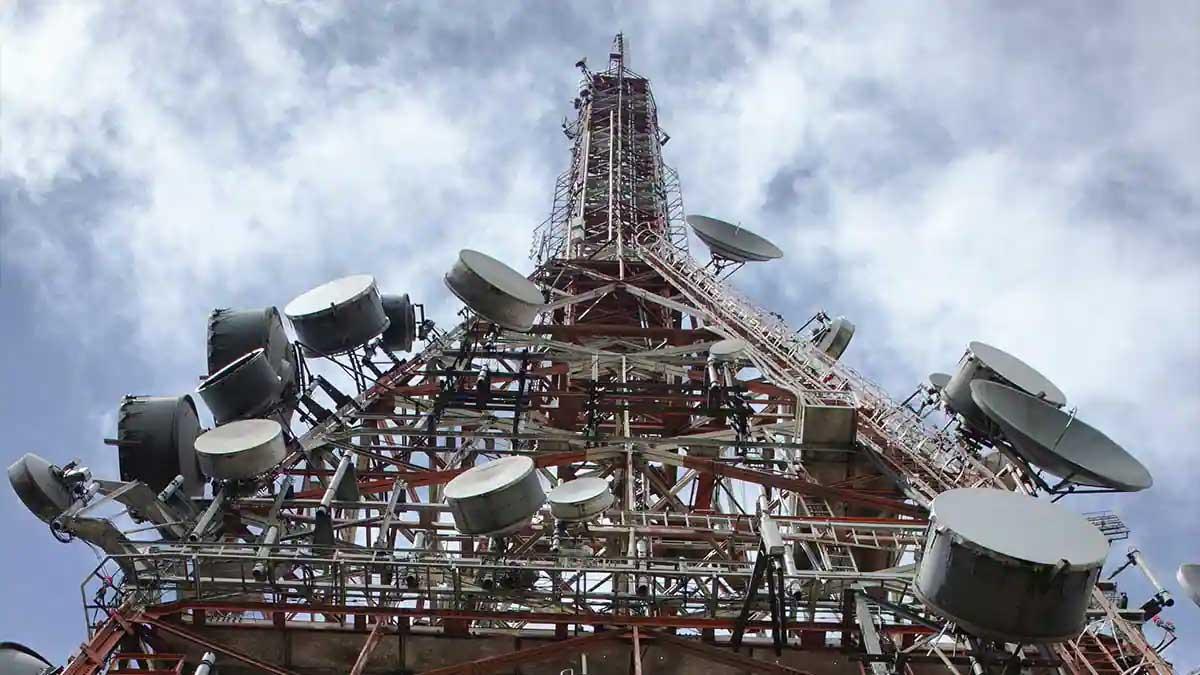LTG Platforms Should Share Network Costs: COAI
COAI proposes that large traffic-generating platforms (LTGs) like OTTs should share network costs, arguing that telcos shouldering the full burden is unsustainable. This model aims to ensure a fair share of costs from entities benefiting from the burgeoning app economy.

Photograph: PTI Photo
New Delhi, Jan 4 (PTI) COAI has proposed that 4-5 large traffic-generating (LTG) platforms like OTTs responsible for the disproportionate traffic growth on telecom networks should bear the equitable share of costs, as the industry body argued that telcos shouldering the full burden is "neither sustainable nor prudent".
COAI noted that startups and MSMEs need not come under the 'fair share model', as their share of contribution to the overall traffic is small compared to LTG (large traffic generating) platforms.
Mooting various models and approaches to address the issue - which has become a flashpoint between OTTs and telcos, COAI said, "The best solution is for an equitable share of these costs to be borne by the 4-5 LTGs responsible for the disproportionate traffic growth".
Such a model would also safeguard the interests of startups and MSMEs, it said.
"...model 5 emerges best suited towards addressing this continuously rising infrastructure cost driven by accelerated data usage due to LTG traffic," COAI paper pointed out.
Putting the entire burden on telecom service providers (TSPs) is neither sustainable nor prudent, the Cellular Operators' Association of India (COAI) said, batting for the model where 4-5 LTGs causing disproportionate traffic growth can shoulder a fair share of network costs.
"This is a feasible option and addresses all concerns of various parties that is net neutrality, double dipping and others," COAI said in the white paper.
It analysed and formulated five models of resolution to the issue at hand, and said two of these models were workable solutions.
"However, the final recommendation is for a model that keeps MSMEs and Startups out of the ambit of fair-share (as consistently maintained and intended by the TSPs), and shows that the burden on the TSPs due to the LTGs' growing traffic patterns, even without the smaller players, is substantial and needs to be addressed," SP Kochhar, Director General of COAI, said.
A worldwide debate is raging presently on whether the large traffic generating (LTG) platforms/applications including over-the-top (OTT) service providers, such as video streaming and messaging platforms, should contribute towards the associated network costs, the industry body observed.
"LTGs put a disproportionate amount of data traffic on the networks and enjoy the benefits of telecom infrastructure built and maintained by operators for gaining profits, giving rise to this debate. These LTGs consume a significant portion of internet bandwidth, leading to increased network costs for operators," COAI said.
However, such platforms currently pay no direct fees for utilising this infrastructure.
"This disparity hinders the operators' ability to invest in network upgrades and expansion such as the launch of 5G services in India - ultimately impacting service quality for consumers," it said.
With the fast-evolving trend of digital convergence across sectors, especially with 5G, and the aspirations for the future 6G, it is realistic to expect even more bandwidth-heavy applications and services to emerge going forward, said COAI - an industry body whose members include Reliance Jio, Bharti Airtel and Vodafone Idea.
The tech advances mean that investments in network infrastructure for delivering them would also soar and would be difficult for the telcos to bear alone.
"Thus, there is an unavoidable need for a fair-share mechanism that ensures equitable contributions from the entities benefitting from the burgeoning app economy," according to COAI.
COAI noted that startups and MSMEs need not come under the 'fair share model', as their share of contribution to the overall traffic is small compared to LTG (large traffic generating) platforms.
Mooting various models and approaches to address the issue - which has become a flashpoint between OTTs and telcos, COAI said, "The best solution is for an equitable share of these costs to be borne by the 4-5 LTGs responsible for the disproportionate traffic growth".
Such a model would also safeguard the interests of startups and MSMEs, it said.
"...model 5 emerges best suited towards addressing this continuously rising infrastructure cost driven by accelerated data usage due to LTG traffic," COAI paper pointed out.
Putting the entire burden on telecom service providers (TSPs) is neither sustainable nor prudent, the Cellular Operators' Association of India (COAI) said, batting for the model where 4-5 LTGs causing disproportionate traffic growth can shoulder a fair share of network costs.
"This is a feasible option and addresses all concerns of various parties that is net neutrality, double dipping and others," COAI said in the white paper.
It analysed and formulated five models of resolution to the issue at hand, and said two of these models were workable solutions.
"However, the final recommendation is for a model that keeps MSMEs and Startups out of the ambit of fair-share (as consistently maintained and intended by the TSPs), and shows that the burden on the TSPs due to the LTGs' growing traffic patterns, even without the smaller players, is substantial and needs to be addressed," SP Kochhar, Director General of COAI, said.
A worldwide debate is raging presently on whether the large traffic generating (LTG) platforms/applications including over-the-top (OTT) service providers, such as video streaming and messaging platforms, should contribute towards the associated network costs, the industry body observed.
"LTGs put a disproportionate amount of data traffic on the networks and enjoy the benefits of telecom infrastructure built and maintained by operators for gaining profits, giving rise to this debate. These LTGs consume a significant portion of internet bandwidth, leading to increased network costs for operators," COAI said.
However, such platforms currently pay no direct fees for utilising this infrastructure.
"This disparity hinders the operators' ability to invest in network upgrades and expansion such as the launch of 5G services in India - ultimately impacting service quality for consumers," it said.
With the fast-evolving trend of digital convergence across sectors, especially with 5G, and the aspirations for the future 6G, it is realistic to expect even more bandwidth-heavy applications and services to emerge going forward, said COAI - an industry body whose members include Reliance Jio, Bharti Airtel and Vodafone Idea.
The tech advances mean that investments in network infrastructure for delivering them would also soar and would be difficult for the telcos to bear alone.
"Thus, there is an unavoidable need for a fair-share mechanism that ensures equitable contributions from the entities benefitting from the burgeoning app economy," according to COAI.
You May Like To Read
TODAY'S MOST TRADED COMPANIES
- Company Name
- Price
- Volume
- Vodafone-Idea-L
- 11.65 (+ 3.56)
- 106772451
- Alstone-Textiles
- 0.28 ( -3.45)
- 44187760
- Mangalam-Industrial
- 0.88 ( -2.22)
- 39177573
- Sunshine-Capital
- 0.27 (+ 3.85)
- 35956340
- GMR-Airports
- 104.40 (+ 6.37)
- 30453005





